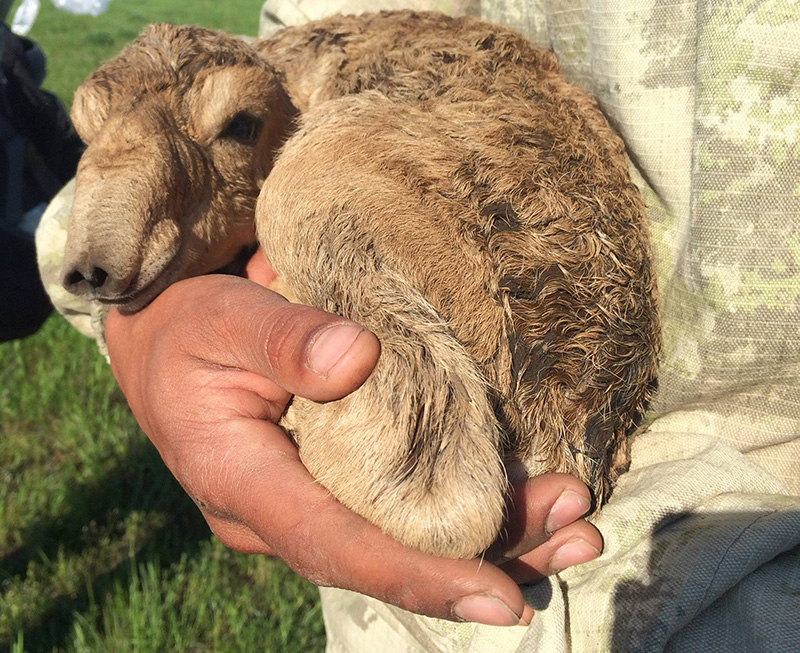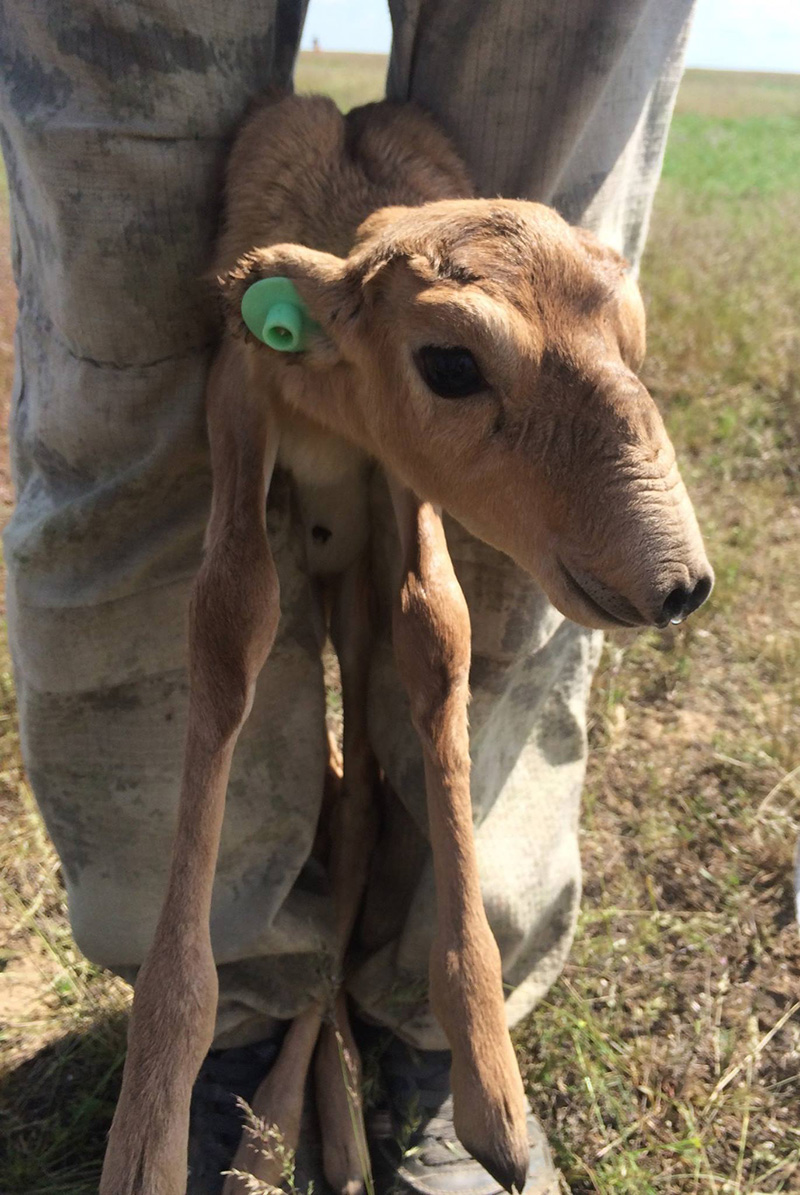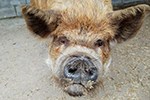Population of critically-endangered Saiga antelope doubles in past three years
The population of the critically-endangered Saiga antelope in Central Asia has doubled during 2016 to 2018.
The latest figures presented by the international group dedicated to its conservation, which includes the Royal Veterinary College (RVC), shows the population now numbers over 228,000 compared to around 103,000 in 2015.

This increase in Saiga numbers is a movement in the right direction following the shock death of more than 200,000 of them in 2015 in Kazakhstan due to the bacterial infection causing septicaemia. The Mongolian population then suffered a loss of 80% of their number from a newly emergent viral disease, Peste des Petits Ruminants (PPR) in 2017. Research by the international stakeholders signed to the CMS Memorandum of Understanding (MOU) Concerning Conservation, Restoration and Sustainable Use of the Saiga antelope suggests that the deaths caused by septicaemia were ultimately linked to unusual climate conditions causing warm humid spring weather.
The doubling in population number is a reflection of the good management and joint efforts of the MOU member countries and organisations to aid the conservation of this species.
The MOU stakeholders met from 1-4 April in Germany to develop the next stage of their conservation plan, as well as to present current findings. At the meeting the group emphasised the importance of continuing and expanding on their successful conservation work due to the continuing diversity of threats facing Saiga Antelope, from poaching and disease, to the construction of human infrastructure.

The new plan, covering 2021-2025, will prioritise future actions for Saiga conservation, and include a wide range of measures relating to disease, sustainable trade, local awareness, habitat protection, monitoring, anti-poaching work and captive breeding. The plan will be submitted for adoption at the fourth meeting of MOU signatories scheduled for 2020 in Russia.
Professor Richard Kock of the RVC said: “This extraordinary antelope, a survivor of the Pleistocene era when mammoths roamed the earth is now facing its greatest test in the 21st Century. After recovery from poaching, which devastated numbers at the end of the last Century, recovery has been stalled by a series of disease events causing mass mortality. We fear, due to rapidly changing environmental conditions affecting our climate and the habitat of the Saiga, that the welcome recovery over recent years may be short-lived. Our work is vital to understanding the causes for death and possible mitigation that society can plan for this unique animal.”
The signatory countries and organisations cover the animal’s natural range and include Kazakhstan, Mongolia, Russia, Turkmenistan and Uzbekistan as well as other global partners co-ordinated by the Saiga Conservation Alliance, such as the RVC. The group works in cooperation with the Convention on Migratory Species (CMS) and the Convention on the International Trade of Endangered Species of Wild Fauna and Flora (CITES).

Notes to Editors
For more information please contact:
- Alex Cassells (alexander.cassells@plmr.co.uk) or Ploy Radford (ploy.radford@plmr.co.uk)
- Press Line: 0800 368 9520
About the RVC
- The Royal Veterinary College (RVC) is the UK's largest and longest established independent veterinary school and is a constituent College of the University of London.
- The RVC is ranked as the world’s number one veterinary school in the QS World University Rankings 2019.
- The RVC offers undergraduate, postgraduate and CPD programmes in veterinary medicine, veterinary nursing and biological sciences.
- It is currently the only veterinary school in the world to hold full accreditation from AVMA, EAEVE, RCVS and AVBC.
- In 2017, the RVC received a Gold award from the Teaching Excellence Framework (TEF) – the highest rating a university can receive.
- A research-led institution, the RVC maintained its position as the top veterinary institution in the Research Excellence Framework (2014), with 79% of its submission being rated as world-class or internationally excellent.
- The RVC also provides animal owners and the veterinary profession with access to expert veterinary care and advice through its teaching hospitals: the Beaumont Sainsbury Animal Hospital, in central London, and the Queen Mother Hospital for Animals (Europe's largest small animal referral centre) and Equine Referral Hospital, both located at the Hertfordshire campus.
You may also be interested in:
-
New research from the RVC highlights pandemic risks posed by evolving swine flu viruses in Europe
A new study led by the Royal Veterinary College (RVC) has revealed significant genetic and …

